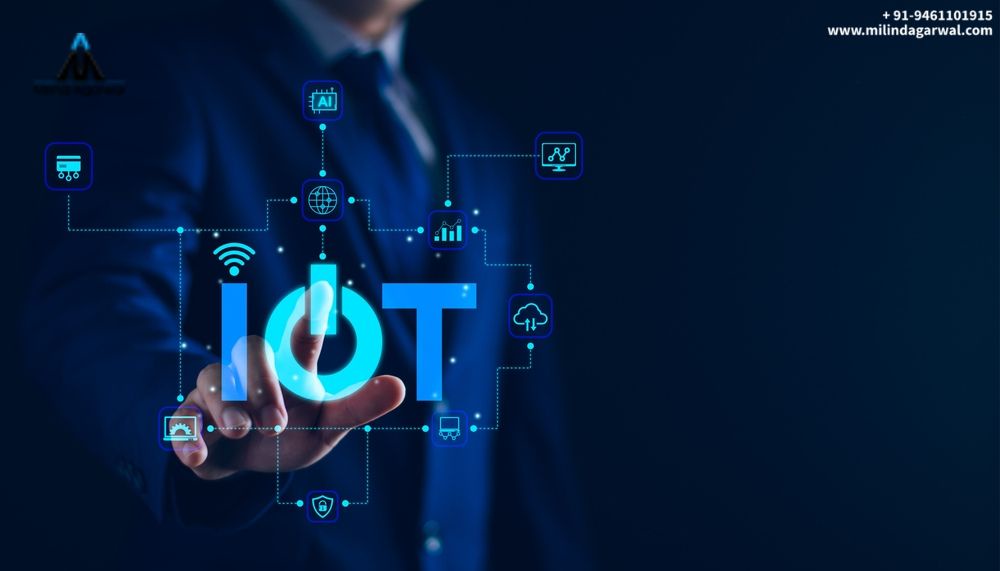As the Internet of Things (IoT) continues to revolutionize industries by connecting devices and enabling data-driven decision-making, businesses must tread carefully to ensure compliance with the legal framework governing IoT deployments. In India, where IoT adoption is on the rise, consulting with an Internet of Things lawyer in India becomes crucial to navigate the intricate legal landscape. This article explores key legal perspectives on IoT deployments in India, shedding light on regulatory considerations and potential challenges.
Privacy and Data Protection
One of the foremost concerns in IoT deployments is privacy and data protection. The Personal Data Protection Bill (PDPB), anticipated to be enacted soon, will play a pivotal role in shaping the legal landscape. IoT deployments involve the collection and processing of massive amounts of data, raising concerns about user consent, data security, and purpose limitation.
IoT lawyers in India emphasize the need for organizations to align their data processing practices with the principles outlined in the PDPB. Ensuring robust consent mechanisms, implementing data encryption, and establishing stringent security protocols are essential steps for businesses engaged in IoT.
Cybersecurity Compliance
Given the interconnected nature of IoT devices, the risk of cybersecurity threats looms large. Indian businesses must comply with the Information Technology (Reasonable Security Practices and Procedures and Sensitive Personal Data or Information) Rules, 2011. This mandates the implementation of reasonable security practices to protect sensitive personal data from unauthorized access or disclosure.
IoT lawyers advise businesses to conduct regular cybersecurity audits, adopt encryption standards, and deploy secure communication protocols. Additionally, creating an incident response plan and promptly reporting any breaches to the relevant authorities is crucial to demonstrate compliance.
Regulatory Compliance and Standards
The Telecom Regulatory Authority of India (TRAI) and the Department of Telecommunications (DoT) are key regulatory bodies overseeing the telecommunications and IoT sectors. Compliance with their guidelines is imperative for lawful IoT deployments.
IoT lawyers can assist businesses in understanding and adhering to TRAI's recommendations on the security and privacy of IoT devices. Furthermore, compliance with the DoT's licensing requirements for connectivity services ensures that businesses do not run afoul of regulatory obligations.
Liability and Accountability
The complex nature of IoT ecosystems raises questions about liability in the event of system failures, accidents, or data breaches. Legal experts stress the importance of clearly defining responsibilities and liabilities in contracts between stakeholders involved in the IoT value chain.
Businesses must consult with IoT lawyers to draft comprehensive agreements that allocate responsibilities, address indemnification clauses, and establish clear lines of accountability. This becomes crucial not only for mitigating legal risks but also for fostering trust among stakeholders.
Intellectual Property (IP) Protection
The innovative nature of IoT solutions often involves the development of new technologies, algorithms, and software. Safeguarding intellectual property rights is a critical aspect that IoT lawyers in India can help businesses address.
Consulting with legal experts allows businesses to navigate the complex landscape of patents, trademarks, and copyrights related to IoT innovations. Establishing a robust IP strategy ensures that organizations can protect their inventions and innovations, fostering a competitive advantage in the market.
Conclusion
In the rapidly evolving landscape of IoT deployments in India, consulting with an Internet of Things lawyer in India is not just a legal necessity but a strategic imperative. From privacy and data protection to cybersecurity compliance, regulatory adherence, liability issues, and intellectual property protection, legal experts play a crucial role in helping businesses navigate the complexities of IoT.
As businesses strive to leverage the transformative potential of IoT technologies, a proactive approach to legal compliance ensures long-term success and sustainability. By staying abreast of evolving regulations and seeking legal counsel, organizations can deploy IoT solutions with confidence, knowing that they are not only innovative but also legally sound in the Indian context.


No comments yet